The best 60s movies: the 24 greatest films of the 1960s
These are the greatest films from the 1960s.

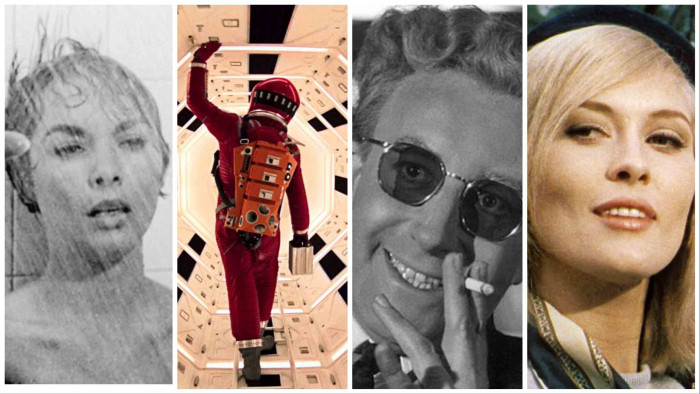
The 1960s: what a decade. It brought us the key years of The Beatles, the Summer of Love, the birth of flower power and the rise of the civil rights movement.
All that cultural change fed into cinema too. Out went the stuffy ways of old Hollywood, and in came a whole raft of experimental, transgressive, and just plain brilliant movies that dabbled with new film making techniques and big ideas.
The 60s also saw the collapse of the old Hollywood studio system, where the studios controlled the entire process of film-making with an iron fist, letting in more influences from Europe and beyond.
From horror to sci-fi, and from westerns to kitchen sink dramas, directors in the 1960s reached for the stars, establishing a cinematic language that is still spoken by today’s best directors.
Here, then, are 24 of the best movies of the 1960s. If you don’t see your number one on the list, don’t worry – we’ll be expanding this list over time.
If your top 60s film is on the list, though, then give it a vote.
The best 60s movies

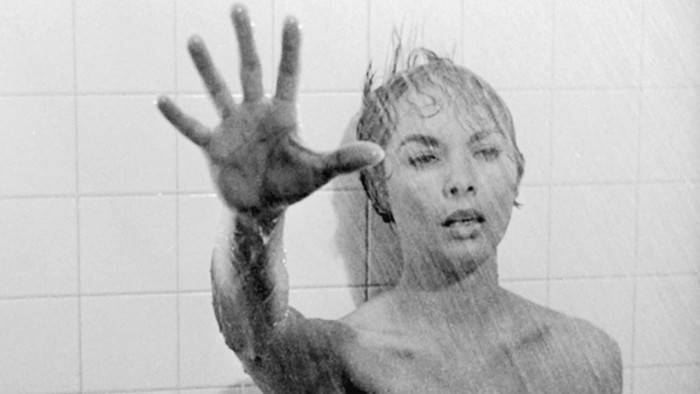
1. Psycho (1960)
It’s startling to think that Alfred Hitchcock’s black and white horror masterpiece was made right at the start of the decade. Its lurid subject material, all about a disturbed motel owner who dresses up as his mother and kills women, was about as far removed from the staid ’50s vibe as can be imagined. So too are the film’s outrageous twists and, of course, THAT shower scene.

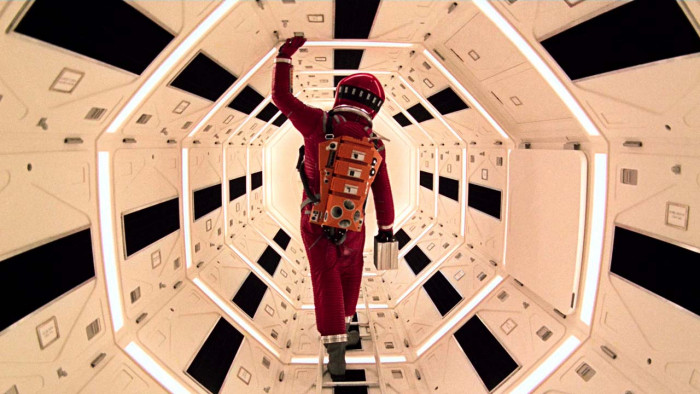
2. 2001: A Space Odyssey (1968)
Stanley Kubrick’s 1968 masterpiece pretty much wrote the rulebook for any subsequent sci-fi film with aspirations of being taken seriously. From its iconic wordless opening sequence running through the ascent of man from simian tribe to spacefaring tourists, it’s clear that 2001 is shooting way beyond the moon. The outstanding practical effects, the prescient showdown with rogue AI HAL, and the climactic psychedelic space trip were all beamed in from some point in the future.

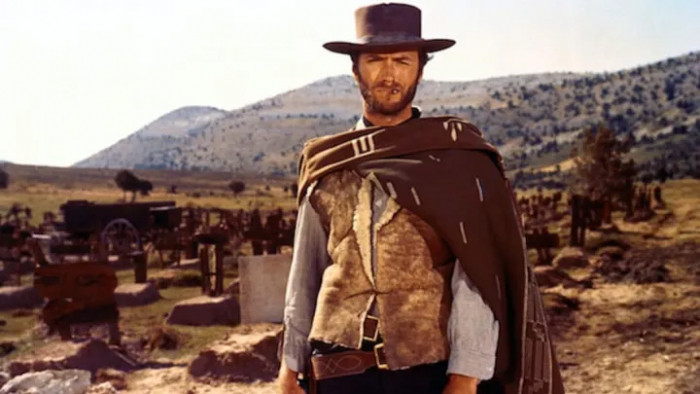
3. The Good, the Bad and the Ugly (1966)
Sergio Leone’s so-called Dollars trilogy would launch the career of Clint Eastwood, as well as setting the terms for tense, gritty Wild West action for generations to come. The Good, the Bad and the Ugly is the third and final of these films, bringing together Eastwood’s moody gunslinger, Eli Wallach’s swarthy bandit, and Lee Van Cleef’s mercenary for a blood-soaked treasure hunt. Ennio Morricone’s iconic score arguably takes the fourth lead in this seminal spaghetti Western.


4. Dr. Strangelove or: How I Learned to Stop Worrying and Love the Bomb (1964)
Stanley Kubrick was the master of any form of film making he set his mind to. With Dr. Strangelove he nailed biting satire, sending up the absurdity of the nuclear brinkmanship that was then being played out between the US and the USSR. The film is also notable for the performance – or rather, performances – of British actor Peter Sellers, who well and truly announced his comic genius for all the world to see.

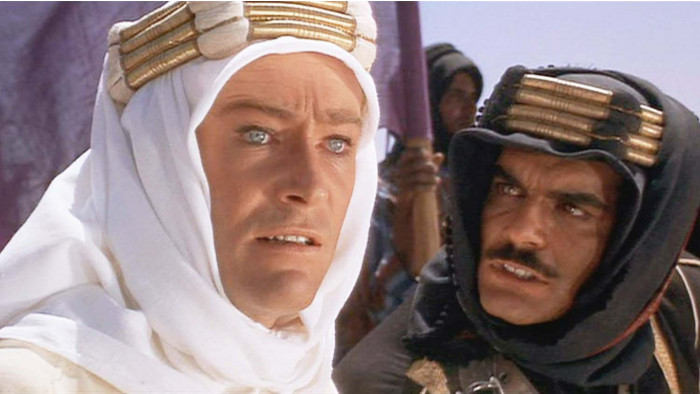
5. Lawrence of Arabia (1962)
David Lean’s 1962 film has become cinematic shorthand for epic cinematography, involving sweeping natural vistas, a swooning score, and a frankly daunting numbers of extras. Peter O’Toole plays historical figure T.E. Lawrence as he attempts to unite feuding Arabian tribes during the First World War. If you needed any further reason to give Lawrence of Arabia due reverence, it’s the film Steven Spielberg has watched more than any other.

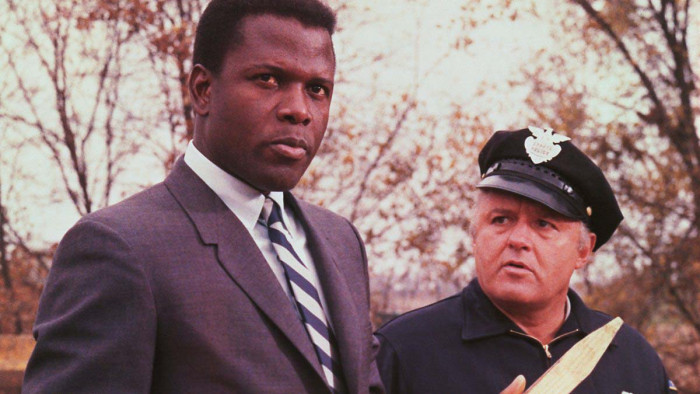
6. In the Heat of the Night (1967)
Norman Jewison’s Oscar-winning neo-noir mystery stars the incomparable Sidney Poitier as Virgil Tibbs, an African-American Philadelphia cop whose able assistance is most definitely not welcomed during a murder investigation in small town Mississippi. The themes of racial discrimination and police heavy-handedness were white hot at the time of the film’s release, and have hardly lost any of their relevancy in the years since.

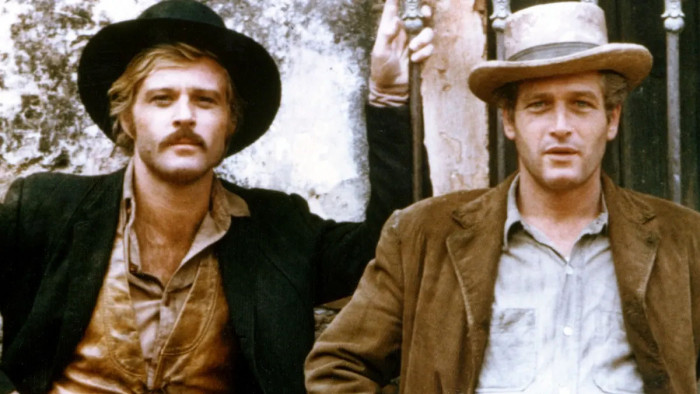
7. Butch Cassidy and the Sundance Kid (1969)
If the ’40s and ’50s were full of westerns that mythologised America’s frontier spirit, Butch Cassidy and the Sundance Kid shot it full of holes and left it to bleed out. Paul Newman and Robert Redford play bickering outlaws on the lam in South America. The film is perhaps most memorable for its iconically downbeat freeze-frame final shot, which would rapidly enter the pop culture lexicon.

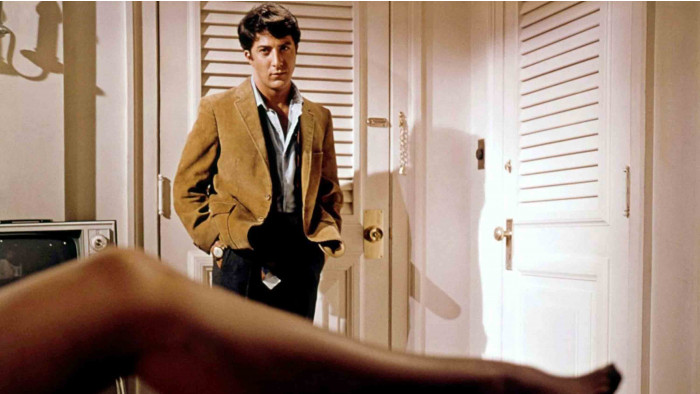
8. The Graduate (1967)
The Graduate is simply jam packed with sights, sounds, and lines, that have seeped into the public consciousness, from Simon and Garfunkel’s bittersweet tones to Ann Bancroft’s proto-MILF Mrs Robinson, right through to that tantalisingly uncertain final shot. At the heart of the whole thing is Dustin Hoffman’s privileged but listless graduate, desperately looking for purpose and connection as he embarks on an affair with an older woman.

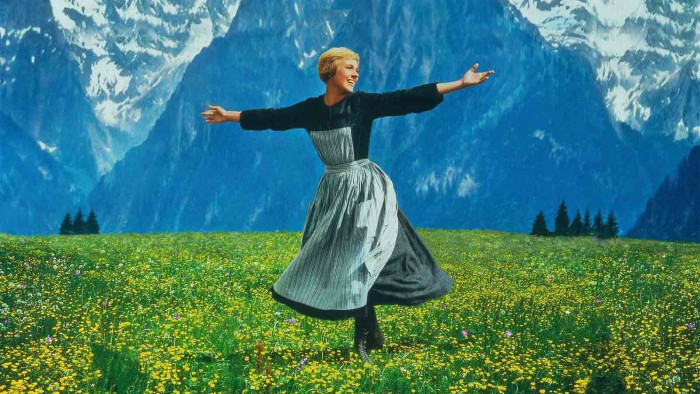
9. The Sound of Music (1965)
Even if you think you don’t like musicals, you have to doff your Tyrolean hat to The Sound of Music. From its stunningly scenic cinematography to its rousingly familiar musical numbers, this is a musical that has made its way into the very fabric of cinematic history. Julie Andrews and Christopher Plummer star, but it’s those Rodgers and Hammerstein songs that have made the film immortal.

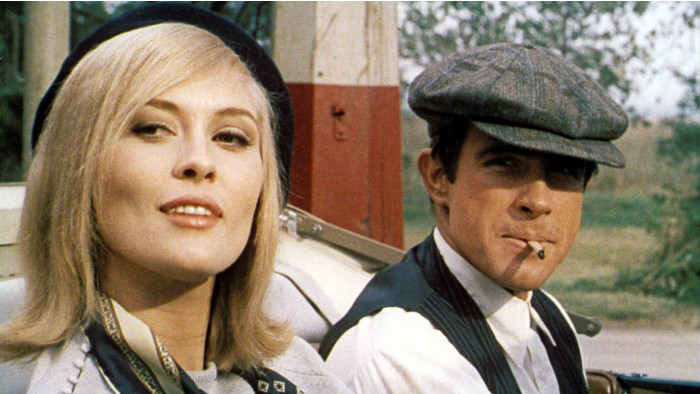
10. Bonnie and Clyde (1967)
Based on the true story of a couple of depression-era bank robbers, Bonnie and Clyde was notable at the time for its unflinching depiction of gun violence – especially in its brutally bloody finale. Hugely influenced by the French New Wave, and with a script that pops like a tommy gun, it still feels fresh today. Twin leads Warren Beatty and Faye Dunaway perfectly convey the media-baiting charisma of our doomed lovers.

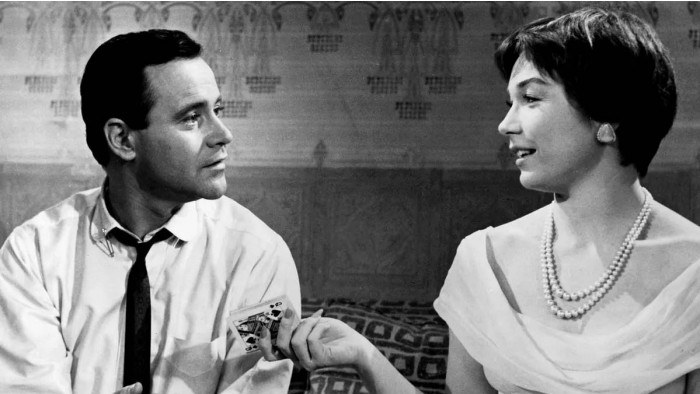
11. The Apartment (1960)
After making perhaps the quintessential American comedy in Some Like it Hot, director Billy Wilder turned in this much loved – and hugely influential – rom com. Ambitious insurance clerk Jack Lemmon makes his New York apartment available to co-workers for their illicit trysts whilst harbouring a crush on his workplace elevator operator, played by Shirley MacLaine. The Apartment is sharply observed and very funny, not to mention surprisingly daring for a film of its vintage.


12. Midnight Cowboy (1969)
As the optimistic ’60s came to an end and the gritty New Hollywood of the ’70s approached, director John Schlesinger evidently thought he might as well skip to the chase. Jon Voight plays the handsome southern boy seeking to become a New York gigolo, while a young Dustin Hoffman plays the sickly conman who befriends him. It’s the only X rated film to win the Best Picture Oscar, which says a lot for its bleak brilliance.

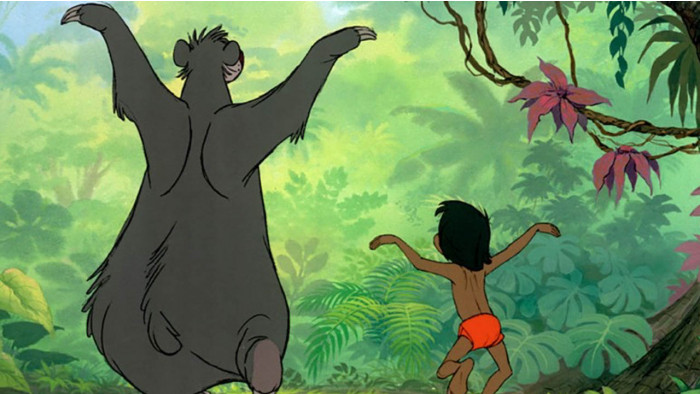
13. The Jungle Book (1967)
The two top Disney animated movies of the 1960s were The Jungle Book and One Hundred and One Dalmatians. Both are classics, but we think The Jungle Book slips past with its pacing and sheer wealth of iconic moments. And that’s before we even think about the songs, like The Bare Necessities and I Wanna Be Like You.

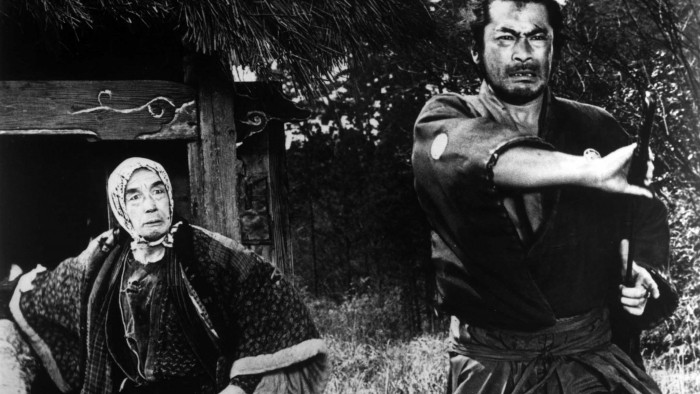
14. Yojimbo (1961)
The majestic samurai films of Japanese director Akira Kurasawa have proved hugely influential to the American Western genre, and to action cinema in general. Take Yojimbo, with its tale of a laconic drifter (Kurosawa mainstay Toshiro Mifune) playing two rival gangs off one another. This taut thriller would go on to be remade (unofficially) in 1964 as A Fistful of Dollars and (officially) in 1996 as Last Man Standing, a testament to its enduring appeal.


15. 8 1/2 (1963)
Italian filmmaker Federico Fellini’s surrealist comedy-drama won Oscars for Best Foreign Language Film and Best Costume Design, and it frequently makes its way onto ‘best film ever’ lists. Viewed through a modern lens, it’s startlingly meta stuff, depicting an Italian film maker attempting to get over a creative blockage with his latest movie project. One of the most influential films ever made, you’ll find that 8 1/2 forms a building block in the creative make up of most of the famous directors working today.

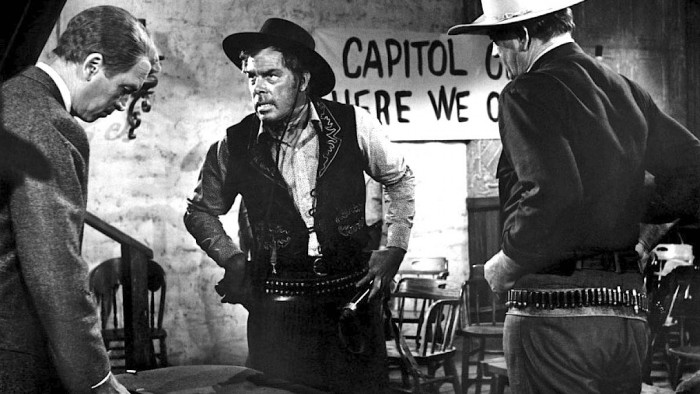
16. The Man Who Shot Liberty Valance (1962)
John Ford’s The Man Who Shot Liberty Valance is a late entry to the field of classic black and white Westerns, and one of the best ever made to boot. It takes a world weary look at the tropes of the Western genre whilst simultaneously ticking off all the usual boxes, with a stellar cast of proven Western players that includes John Wayne, Jimmy Stewart, and Lee Marvin.

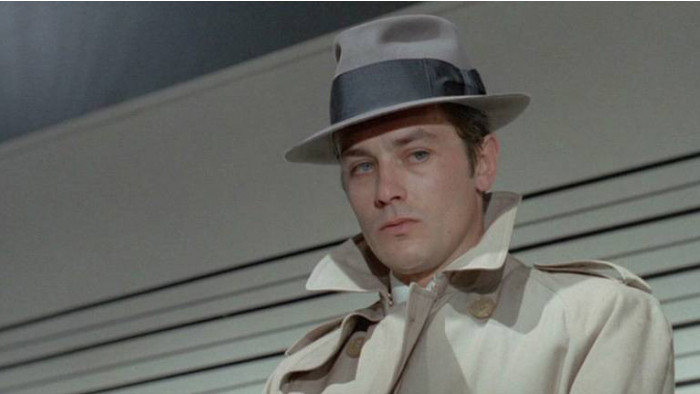
17. Le Samourai (1967)
You can see the influence of Jean-Pierre Melville’s French New Wave classic, Le Samourai, in any subsequent film that involves a hitman going about their business in an ineffably cool fashion. Alain Delon plays the ice-cold professional killer who finds himself the target of both unwanted police attention and shady underworld figures. As an exercise in classic film-noir filmmaking shot through with Gallic style, Le Samourai is nigh-on unimpeachable.

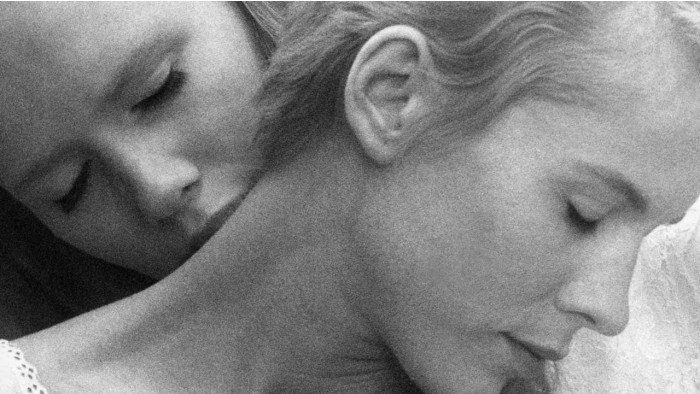
18. Persona (1966)
A candidate for Ingmar Bergman’s best film, Persona is a strikingly original work that packs a lot into just over 80 minutes. An actress has a breakdown and becomes mute. She moves to the coast to recover, but the lines between her and her carer Alma begin to blur. It’s a challenging watch you won’t forget.

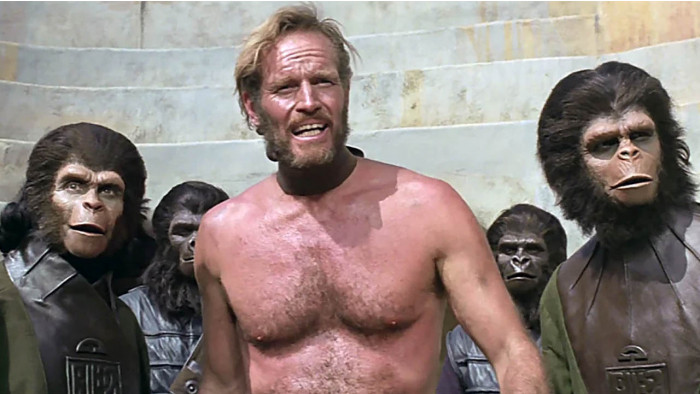
19. Planet of the Apes (1968)
This film has one of the most famous twist endings in all of cinema. But Planet of the Apes is more than just its final shots. This is a science fiction classic with a socio-political bent. Charlton Heston's George Taylor crash lands on a planet after spending more than 2000 years in stasis. He finds a world of intelligent apes, and is captured by them, having to prove his intelligence to avoid death.

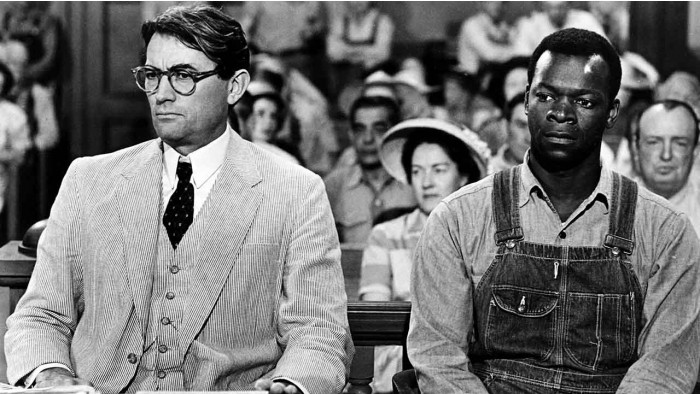
20. To Kill a Mockingbird (1962)
Gregory Peck is Atticus Finch, a lawyer defending a black man accused of rape. We see through the eyes of Finch's children the noxious effects of racism on American society. The film was released just two years after the publication of the book on which it is based, a classic in its own right by Harper Lee.

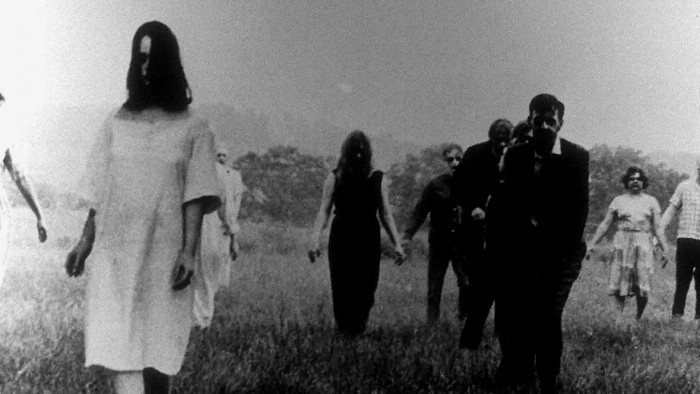
21. Night of the Living Dead (1968)
George A. Romero’s Night of the Living Dead essentially invented the zombie genre that has saturated pop culture for the past few decades. Without this film, there would be no The Walking Dead, The Last of Us, 28 Days Later, or indeed Shaun of the Dead. Romero’s film remains an expertly crafted slice of low budget horror with a strong side of social commentary, as small town America is torn apart by its own reanimated citizens.

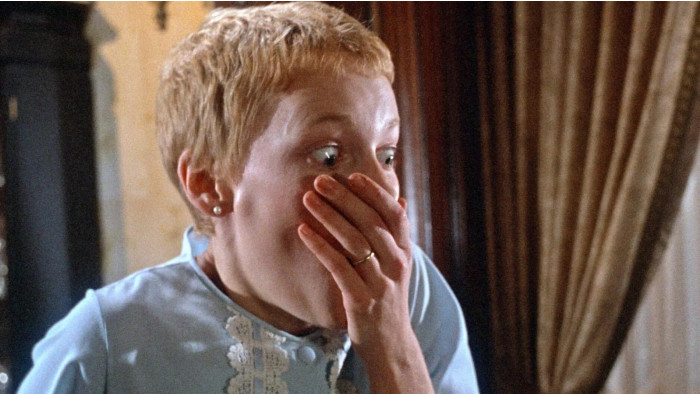
22. Rosemary’s Baby (1968)
When it comes to Rosemary's Baby, you have to try and separate the person from the art created, given the controversies that surround Polish director Roman Polanski. If you can do this, then you are rewarded with a film that's a deeply unsettling psychological horror, as Mia Farrow’s young soon-to-be mother becomes increasingly paranoid that a Satanic cult has evil designs on her baby.

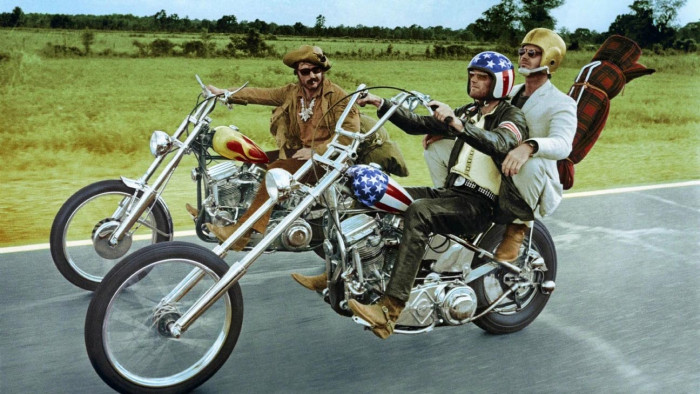
23. Easy Rider (1969)
Dennis Hopper’s directorial debut is a landmark of counterculture film making. Hopper and Peter Fonda play a pair of biker hippies using the proceeds of a drug deal to make a two-wheeled journey to New Orleans for Mardi Gras. This free-wheeling movie perfectly captures the freedom, drug experimentation, and societal tensions of the time, heralding a new era of iconic independent cinema into the bargain.

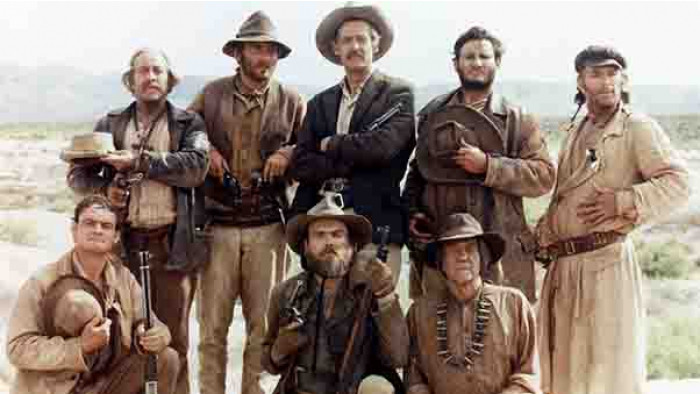
24. The Wild Bunch (1969)
Sam Peckinpah’s brutal Western concerns a gang of grizzled archetypes, led by William Holden’s aging gunslinger, all struggling to make sense of a rapidly civilising world. In the great director’s hands, the dying days of the Wild West are no place for heroes. The Wild Bunch attracted considerable controversy at the time for its wanton nihilism and explicit violence, but it stands today as an early and shining example of the revisionist Western.
- These are the best movies of the 70s.
Latest
Related Reviews and Shortlists


The 10 best war movies of the 21st century








